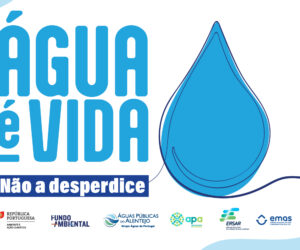Opinion (Rogério COPETO): The "NEW" CHILD PROTECTION ACT AND YOUTH IN DANGER.
The Parliament approved last Tuesday 6th, day 5 June, the second amendment to the Child Protection Act and Young People in Danger (LPCJP) since its entry into force in 1 September 2001, has been changed 76 Articles, total no 128 and introduced into 6 new articles.
Lieutenant Colonel of the GNR, Master in Law and Security and Homeland Security Auditor
Head of the Education Division / Command Doctrine and Training
Although not dealing with a new law, it turns out that the changes introduced in more than half of the diploma are significant, establishing itself as changes, that keeping the mother and the principles of the Promotion System and Protection of Children and Young People in Danger (SPCJP), see substantially improve the same system.
Not intending to do a review of all the items that have changed, but realizing those, which we believe will be the changes that will bring more benefits to SPCJP, also being those that all operators of the system have long yearned.
To begin to change the definition of "best interests of the child" which happens to take into account "the continuity of quality and significant relationship of affection". Also the emergency setting is changed, becoming a broader concept, however requiring, always immediate protection in accordance with emergency procedures of article 91, it also changed, which will be mentioned later, as it should be.
Entities with competence in Childhood Matters and Youth (ECMIJ) gain a new definition, seeing further strengthened its role in preventing danger to children and young people.
With regard to the intervention of the Child Protection Committees and Youth in Danger (CPCJ), this intervention continues to always depend on the consent of the parents, now and this consent, further clarified, facilitating the intervention of CPCJ's.
Within the scope of judicial intervention are introduced new grounds for the CPCJ's request the intervention of the public prosecutor, and in such cases the process always referred to the Court.
The collaboration of public services, administrative authorities and law enforcement agencies with the CPCJ's is extended to the duty to inform and issue, without expense, any documents requested by these, being made even introduced a new article on access to sensitive personal data.
Another new item is introduced forces CPCJ'sa have by law a complaints book, it is for the National Commission for Protection of Children and Young People at Risk (CNPCJR) appreciate all the claims filed.
One of the most significant changes is the one made in support of the operation of CPCJ's, leaving provision is made for mere "logistical support" by municipalities, widening support for the financial and administrative aspects, with all the consequences arising out of these new responsibilities to the county, seeing CPCJ's expanded the support received, so necessary for their proper functioning, and may also CPCJ's the protocol the allocation of human resources, with the entities represented in the enlarged committee, innovative mechanism to address the constraints that CPCJ's always debated.
Also innovative is the possibility to the appearance CPCJ's intercity, in adjacent municipalities with fewer inhabitants, with the intention to enhance the response qualifying protective for children and local youth.
The composition of CPCJ is enlarged in membership, through the Ministry of Internal Affairs to be represented by all the security forces represented in the territorial jurisdiction area's CPCJ, concluding that the Foreigners and Borders Service will join the extended mode of CPCJ's.
The skills of the enlarged committee are also increased, as well as its functioning is changed, and that these should now meet every month and its members affect eight hours of actual work, integrated into their normal working hours.
Also the composition of the core committee is increased, verifying that the health and education must pass to be represented, beyond social security, as well as their skills are extended, and we shall now decide the opening and education of the promotion and protection process, the figure of the "Process Manager" being created, with the introduction of a new article, which gives it the power to mobilize stakeholders and resources available to ensure all the supports that the child and his family need.
The president of CPCJ see your position "professionalized", passing the member elected to exercise it full time, where the area of their there CPCYP 5.000 or more inhabitants with at least 18 years, It is the originator of the elected president, notified through the minutes of the meeting that elected him, still seeing the member elected as president his prized assessment, the performance as president of CPCJ.
To strengthen CPCJ's Commissioners see their working recognized as a priority, relating to respective services in carrying, constituting a mandatory public service, It is still regarded as provided in your profession, passing their mandates to three years, renewable twice, and the mandate of the President renewable only once, thus allowing a better use of knowledge and experience of commissioners.
Within the framework of the promotion measures, the "residential care" changes its name to "residential care", still being changed as promotion of "reliable person selected for adoption or the institution with a view to future adoption", now allowing this measure also trust the host family with a view to adoption, allowing in this way a smooth transition from foster care and adoptive project.
The "provisional measures" shall be called the "precautionary measures" being applied by the Court in emergencies and the CPCJ's come while the diagnosis of the situation.
Also as part of the promotion and protection measures, they may not have a very extensive application in time, because of successive measures taken, fitting to prosecutors evaluate the implemented strategy, taking into account the "child's time".
As mentioned at the beginning of this text, was no intention to make an exhaustive review of all the amendments to LPCJP, but those of a text 3 allows pages, can not finish without addressing the changes to the notorious Article 91 "urgent procedures in the absence of consent".
Changes that artº 91 suffered, although subtle, change your application in the way we have always defended, becoming a mandatory procedure for all ECMJI, to check a situation of actual or imminent danger to the life of the child or youth, ceasing to be, as some authors defended, Exclusive Security Forces. Also its application is extended to situations of severe impairment of physical or psychological integrity of the child or young, and not only to physical integrity, as in the previous wording.
But the change that will make the most difference is the substitution of the words law of the letter "... and there is opposition…"With" ... in the absence of consent ... ", which extends its application, since there is no need expressed opposition parent, simply the absence of consent, what often happens, in that they are not present, when danger and therefore inhibit the application of article 91.
As mentioned, the amendments to artº 91, although subtle, They are essential to clarify a procedure that can save lives and by different interpretations of the same, motivated in the past few conflicts between ECMJI, the security forces and prosecutors, which we believe will cease to exist now.
As main conclusion, it is noted that although not a "new" LPCJP, as amended, have undoubtedly improve the "System Protection of Children and Young People in Danger", so deserving our applause.

























